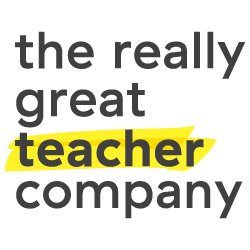Teaching in Ghana
Options for teaching in Ghana
Ghana has teaching jobs for English teachers, licensed classroom teachers, and university faculty. Although English is Ghana’s official language, English teachers are still in demand as the government works to bring up students’ overall reading and writing skills.
Ghana also has a number of international schools, most of which follow American, British, or IB curriculum. These schools hire licensed teachers from the US or UK. Individuals with advanced degrees can also apply to teach in universities in Ghana across a number of different fields.

Salary and benefits when teaching in Ghana
While many English teaching jobs are offered on a volunteer basis, teachers at international schools can expect to make somewhere around the equivalent of 500 USD per month, which will cover the cost of living in Ghana. Some international schools also offer accommodation as an added benefit.
Teach in Ghana – Hiring
The school year in Ghana begins in August or September and runs until June or July. Schools will generally begin posting vacancies to the Teach Away job board around May; however, mid-term vacancies in January often become available as well.

What you need to teach in Ghana
Qualifications to teach in Ghana
In order to teach in Ghana’s international schools, teachers will need a valid teaching license and generally 1-2 years of experience teaching in the required curriculum. Teachers with IB experience should be sure to highlight this on their resumes.
Universities typically prefer to hire candidates who hold a Ph.D.; however, some positions will accept experienced applicants who hold a Master’s degree.
Visas for teachers in Ghana
Employers are expected to submit a work visa application to the Ghana Immigration Service on behalf of their teachers; however, it is the teacher’s responsibility to ensure that all documents are submitted to the school in a timely manner in order to avoid unnecessary delays.

Living in Ghana
Housing in Ghana
Some international schools do provide housing for their teachers as part of their employment benefits. If accommodation is not provided, teachers will usually be given assistance in finding accommodation. Though salaries in Ghana are modest, they are enough to live comfortably in a single apartment, and many teachers find that sharing accommodation helps even more.
Things to do in Ghana
Rich in history and natural beauty, Ghana has plenty for travelers to explore. The majority of teachers will live in Accra, the capital and largest city, which is home to plenty of trendy restaurants, bars, and shopping centers. In addition to the larger, modern malls, teachers can also shop in the city’s winding markets for clothing, fabrics, and crafts.
Viewing Ghana’s historic sites and architecture provides a glimpse into its varied – and often tragic – past. Visit centuries-old mosques or admire European castles and the old fishing village of Jamestown. Visiting Ghana’s remaining slave forts is a more sobering experience, where travelers reflect on the horrors inflicted on Ghanaians during the slave trade. Though somber, visits are rewarding, and the forts are popular destinations for visitors.
Ghana’s national parks preserve the country’s beautiful wildlife. Whether you’re interested in walking a rope bridge through a forest or viewing big cats and elephants on safari, Ghana has it. Make the most of your experience teaching in Ghana by exploring its section of the African countryside.
TEFL Certification for Private School Teachers
Many private schools in Ghana require applicants to possess a TEFL certificate. The University of Toronto’s TEFL Online Certificate can help you become a leading candidate for some of the top Ghanaian private school positions.

Teach in Ghana
Register for a teacher account to apply for teaching jobs in Ghana
Ghana at a glance
Country information
Capital: Accra
Language: English
Population: 27 million
Currency: Ghana cedi (GHS)
Government: Presidential constitutional republic
Quick facts
Ghana was formerly known as the Gold Coast.
Ghana was the first sub-Saharan African country to gain her independence.
Lake Volta is the world’s largest man-made lake.
Ghana was ranked as Africa’s most peaceful country by the Global Peace Index.
There is a tribal government system in Ghana in addition to the national government.
The Kejetia market in Kumasi, Ghana, is the largest market in West Africa.
Ghana is the second largest producer of cocoa beans in the world, next to the Ivory Coast.


















